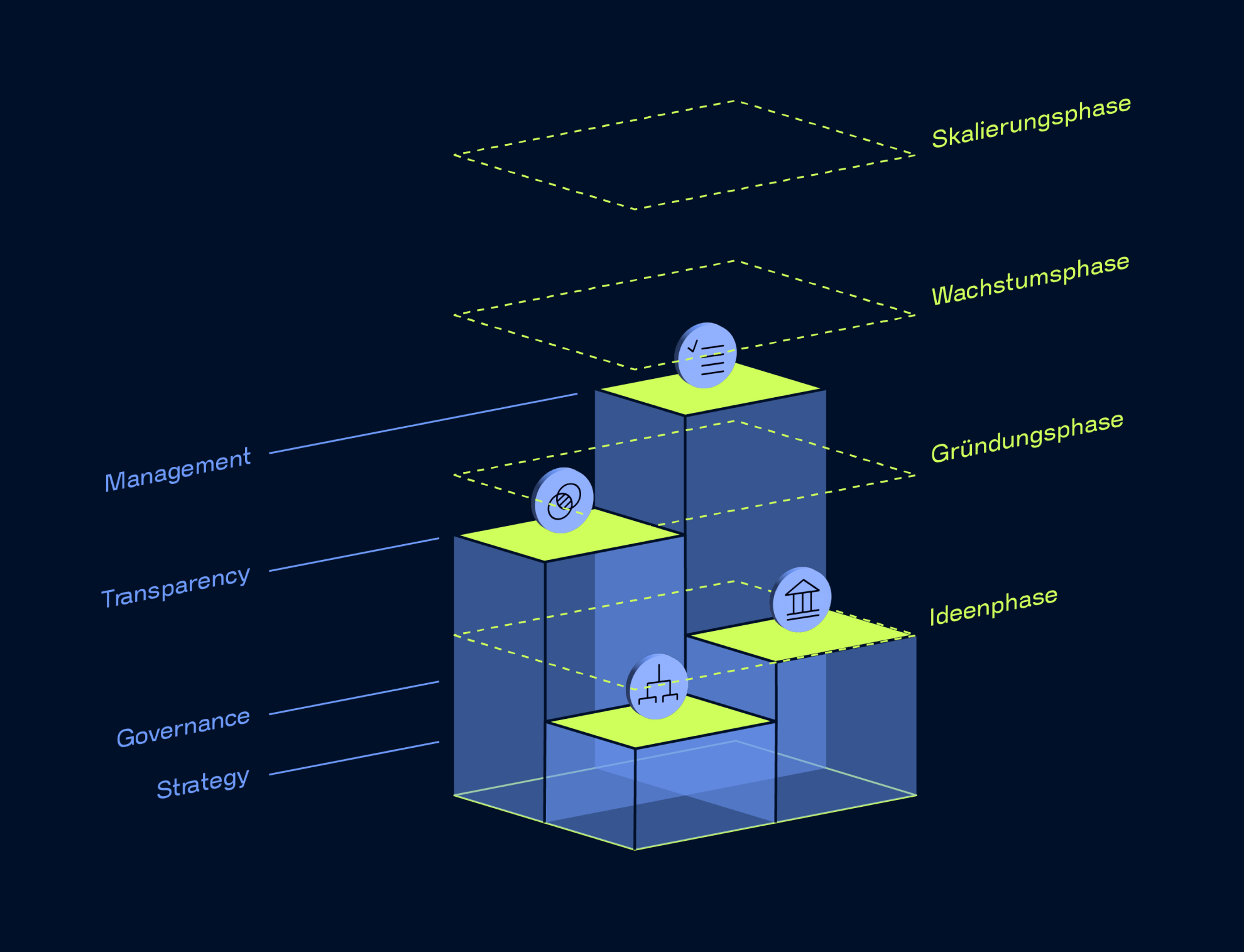Good impact measurement and management are essential to maximizing the positive outcomes of any startup or investment. That’s where the IMMPACT Guide comes in. It combines the IMMPACT Model, a practical framework, with the accompanying Lean Impact Journey playbook. This section focuses on the IMMPACT Model.
Founders face enough challenges – developing a viable business model, securing funding, navigating legal issues. But if you’re building an impact startup, there’s even more on your plate. You also need to define, manage, and deliver social and/or environmental impact. The problem? Most early-stage teams lack the time, money, and expertise to set up those systems from the start. And most existing tools are too complex or resource-heavy to use without serious overhead.
Waiting to implement impact processes until later only makes things more complicated. Yet impact management and measurement (IMM) is crucial for achieving meaningful results for your target groups, aligning your team around a shared mission, and communicating that impact to the outside world – especially to potential investors.
This is exactly where the IMMPACT Model comes in. It’s a hands-on, easy-to-use tool built for:
- Impact startup founders: We define impact startups as businesses with a core mission to tackle major social or environmental challenges. Our focus is on for-profit models, but nonprofits can also use the framework.
- Impact investors: Especially those providing (early-stage) venture capital or just getting started in the impact investing space.
- Ecosystem builders: From startup advisers to policymakers – anyone working to support founders or improve the conditions for impact entrepreneurship.
The IMMPACT Model: Orientation framework for IMM requirements
The IMMPACT Model provides a clear structure for integrating impact management and measurement (IMM) throughout the life of your startup – from idea to launch, growth, and scale.
The IMMPACT Model helps founders cut through the noise and build mission-aligned processes, integrate impact into their business model, and start measuring what really matters. This also offers a solid foundation for communicating with impact-focused investors.
For investors, the IMMPACT Model provides a standardized framework to better evaluate startups and support their growth in impact management. It offers a common foundation for strategic decision-making and measurable success.
And for startup consultants support organizations, the model fills a major gap: the lack of consistent IMM standards for early-stage ventures. It helps advisers structure their programs and provide tailored support that meets startups where they are.
Thanks to all who have contributed to the IMMPACT Model!
The IMMPACT Model was also shaped with input from a group of experienced IMM experts from across Germany. Their insights and experience helped ensure the tool is not just theoretically sound – but actually useful in practice:
- Amyn Vogel (LMU)
- Belinda Büchner (TU Munich)
- Carola Vogel (SEA Academy)
- Felizia von Schweinitz (University of Hamburg)
- Jella Riesterer (Grünhof)
- Juliane von Böselager (FASE)
- Odin Mühlenbein (Ashoka)
- Sébastien Martin (Impact Associates)
- Sumaya Islam (University of Paderborn)
- Young-Jin Choi (Vidia Equity)
